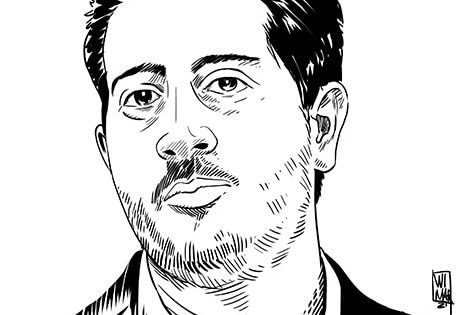(RSF/IFEX) – On 5 May 2003, RSF protested the confiscation of videotapes from French freelance journalist Bernard Briançon. The journalist was in Cuba reporting on the recent crackdown on 78 dissidents who were handed heavy prison sentences in March. A tape of an interview with the wife of one of the 26 jailed journalists was […]
(RSF/IFEX) – On 5 May 2003, RSF protested the confiscation of videotapes from French freelance journalist Bernard Briançon. The journalist was in Cuba reporting on the recent crackdown on 78 dissidents who were handed heavy prison sentences in March. A tape of an interview with the wife of one of the 26 jailed journalists was among the items seized.
“After censoring and jailing independent journalists, the government is now trying to censor their families in order make the world forget about those in jail,” said RSF Secretary-General Robert Ménard in a letter to the Cuban interior minister, General Abelardo Colomé Ibarra.
Ménard also protested the restrictions on visas for foreign journalists, which forces them to work illegally. “This measure is aimed at controlling the news and the country’s image abroad,” he said, while calling on journalists to continue going to Cuba to report on human rights violations. Briançon travelled to Cuba on a tourist visa.
Briançon, who runs Mediasens, a privately-owned production company in France, was detained at Havana airport on 4 May as he was passing through customs on his way out of the country. He was taken to a basement room and his luggage was searched. Eight videotapes of interviews with dissidents were seized without explanation. He was simply asked to sign a receipt acknowledging that they had been confiscated, as a “rectification” measure.
Among the dissidents he interviewed were Beatriz del Carmen Pedroso, wife of Julio César Gálvez Rodríguez, an independent journalist who was arrested on 19 March and sentenced to 15 years imprisonment in early April (see IFEX alerts of 28, 7 and 3 April and 20 March 2003). Del Carmen Pedroso gave details of her husbands conditions of detention. He was transferred to a prison in Santa Clara (Villa Clara province), about 300 kilometres from his Havana home.
Twenty-five other journalists were arrested in late March and each sentenced to jail terms ranging from 14 to 27 years, for allegedly undermining “national independence and territorial integrity” (see alerts of 28, 24, 14, 10, 8, 7 and 3 April, 28, 26, 24 and 20 March 2003).
On 3 May, World Press Freedom Day, RSF published a special page on its website (http://www.rsf.org) entitled, “Cuba, the world’s biggest prison for journalists”, which includes news of the imprisoned journalists, international reactions to their jail sentences and information about the control of news in Cuba. The special feature will be available online in English as of 7 May.


